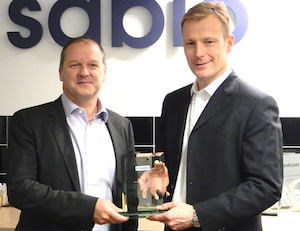 Comms sector M&A activity reached standout levels last year, observes Marcus Allchurch, Partner at Acuity Advisors, who explores the driving forces and their implications for 2016.
Comms sector M&A activity reached standout levels last year, observes Marcus Allchurch, Partner at Acuity Advisors, who explores the driving forces and their implications for 2016.
It's been a standout year for comms sector mega-deals in the UK, the biggest being BT's acquisition of EE which was given the green light last month. BT has to be one of the great success stories of 2015/16 with a share price up by around 20 per cent against this time last year, a firm grip on its nationwide fibre strategy, a growing TV base and an infrastructure to sell into households and businesses across the UK. Furthermore, with Deutsche Telekom soon to own 12 per cent of BT's shares, we would anticipate more opportunities for deeper integration across the combined global footprints and, dare I say, further M&A.
Next up is the much anticipated merger of Three and O2. Three is raising £10.3 billion to acquire O2 from Telefonica with the objective of creating a £15 billion business post-integration with the largest pure-play mobile operation in the UK. Interestingly, it has been rumoured that Three will look to IPO the business after the integration has taken place in order to return capital to its investors.
Both of these deals present opportunities and threats to players in the comms channel. We expect BT and EE to spend some time integrating and working out combined fixed and mobile propositions to be sold through existing channels. This could open up some interesting opportunities for resellers to access EE's mobile network and some new services. There is probably more uncertainty around the future for O2's channel partners as Three's focus to date has been entirely on consumer mobile. This may present a huge opportunity for some channel players, although the potential for disruption will need to be managed carefully.
Looking forward, we have to expect more consolidation. Could Liberty Global re-look at merging with Vodafone? How will Zayo and Interoute continue their expansion plans? And what will TalkTalk do to future-proof itself in a market where converged businesses of scale are emerging all around it?
Turning to the IPO market - is there a bubble, and if so, should we expect it to pop? There is much speculation about another tech bubble, with some good justification. Square, the mobile payments business founded by Twitter CEO Jack Dorsey, shocked the market in November by announcing its intention to IPO with a valuation of $4.2 billion. This is around 30 per cent below its valuation a year earlier when it last raised private money at a valuation of $6 billion.
The reasons underlying this are complex, but the single biggest cause has to be venture capitalists over-pricing early stage companies in the hope that it will 'all be OK' when they exit via a listing on the stock market.
Acuity's view is that these situations, where unicorns are forced to float at lower valuations than they've had in the past, are actually positive overall for businesses operating in the comms market. Why? Firstly, most unicorns are based on the West Coast where there are many more precedents for high valuations of early stage companies operating in markets which they themselves are creating.
Secondly, there is no shortage of capital out there, and should investors shy away from unicorns they are likely to want to invest in lower risk sectors. Telecoms businesses tend to have attractive underlying economics which will always be of interest to investors. And thirdly, with the old guard including Microsoft and BT finally managing to re-invent themselves with a convincing strategy for the future, the place for channel partners will become clearer again and create significant opportunities for investment and value creation.
UK and European private equity investors have enjoyed a great relationship with telecoms companies over the last ten years or so, with many generating considerable returns on the investments they've made (such as XLN, Pulsant, Wireless Logic, Onyx, Six Degrees and many more). As such, we are aware of many private equity houses looking for new investments in the sector. Specific sub-sectors we have seen attracting particular attention include UCaaS, connectivity, security and IoT, all of which interest investors.
A key question for comms suppliers will therefore be, what is the right strategy to attract private equity investment? While I think it's fair to say that there is no right answer, there are themes that investors are keen to see: Recurring and booked revenue is key; capex should be kept as low as possible; and a differentiated capability is also attractive.
Not only should these characteristics reduce the risk during the investment period, but they should also make an exit to trade far easier. We led and completed five comms deals in 2015 and saw a clear preference for trade buyers to focus on filling strategic gaps in their portfolios rather than buying purely to top-up revenue growth and extract opex synergies.
Trends and activities in the M&A market are, on the whole, positive for the comms sector. We see a continuing 'wall of money' providing capital for mid-market companies to grow, improving fixed and wireless infrastructure, and some exciting innovation from new VARs who are able to deliver cutting edge solutions into businesses and deliver a clear improvement in service while reducing cost. These trends should continue to fuel M&A across the sector in 2016. •
 Eclipse has launched its third annual Fastest 4 reseller incentive promotion and again features Ex-Stig Ben Collins who 'can't wait to get cracking' with the winners on race day.
Eclipse has launched its third annual Fastest 4 reseller incentive promotion and again features Ex-Stig Ben Collins who 'can't wait to get cracking' with the winners on race day.
 Sabio has secured Gamma Platinum Partner status following its success in bringing Gamma's portfolio of SIP trunking and inbound number solutions to the contact centre market and broadening its network services portfolio.
Sabio has secured Gamma Platinum Partner status following its success in bringing Gamma's portfolio of SIP trunking and inbound number solutions to the contact centre market and broadening its network services portfolio. Comms sector M&A activity reached standout levels last year, observes Marcus Allchurch, Partner at Acuity Advisors, who explores the driving forces and their implications for 2016.
Comms sector M&A activity reached standout levels last year, observes Marcus Allchurch, Partner at Acuity Advisors, who explores the driving forces and their implications for 2016. 24 Seven Communications' Managing Director David Samuel is a dynamic comms entrepreneur ready to stamp his mark on the reseller channel. Here's how...
24 Seven Communications' Managing Director David Samuel is a dynamic comms entrepreneur ready to stamp his mark on the reseller channel. Here's how...